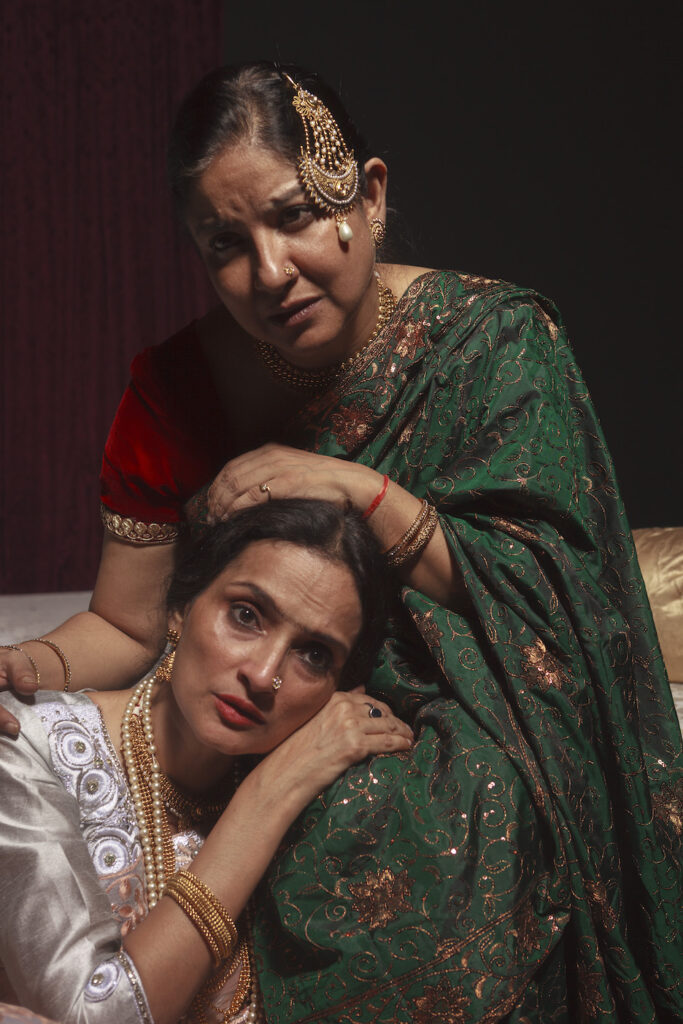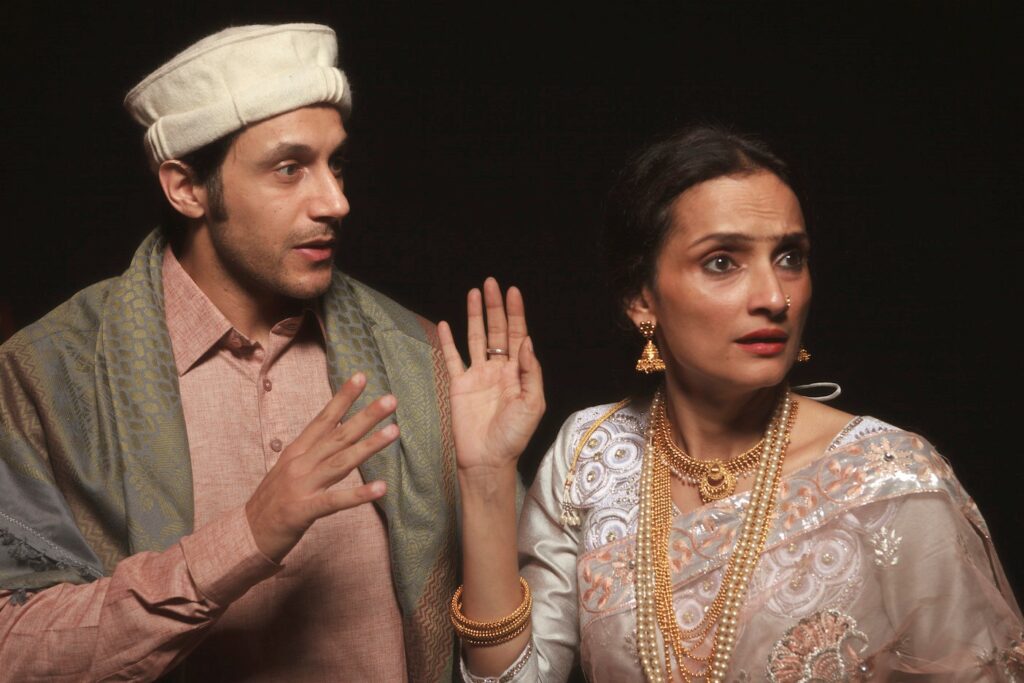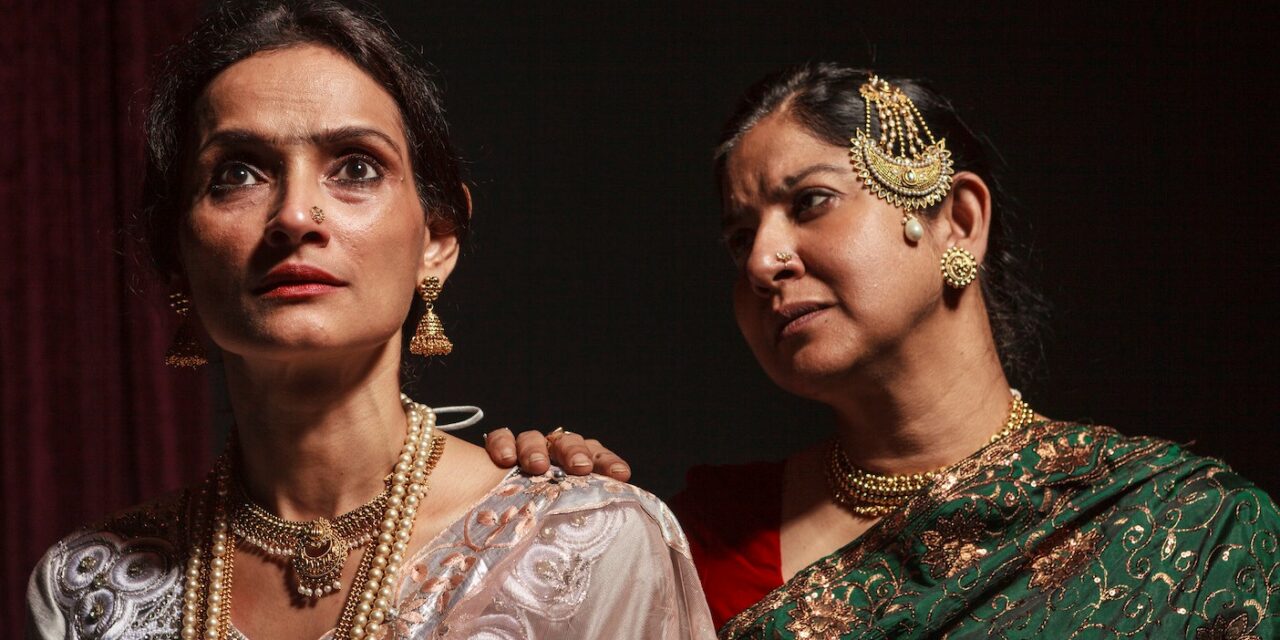Hindi film actress Manorama[ real name Erin Isaac Daniel] was in films since 1920's -ANGLO INDIAN FILM ACTRESSES IN HINDI FILMS OF OLD


Manorama in a photo 1945
Manorama was half-Irish and her real name was Erin Isaac Daniel. She started working in films in 1920s and appeared on screen regularly right till 1980s. In the 90s she did a cameo in Mahesh Bhaty's Junoon (1992) and in 2005 she had a small role in Deepa Mehta’s Water. Thus she had a release in every decade starting 1920s and ending with 2010. A no small feat. Manorama passed away on 15 February 2008.
Manorama
Manorama (actress)
From Wikipedia, the free encyclopedia
She has been acting in films since 1941 under her name Manorama. She was born Erin Issac Daniels. She originally acted in films produced in Lahore. After Partition, she along with her fellow actor Pran left Bombay for Lahore but returned due to the dire straits the cinema facilities there were.
She was married to actor Rajan Haksar.
Actress Manorama was bitter about Bollywood shunning her: Deepa ...
www.bollywood.com/actress-manorama-was-bitter-about-bollywood-shu...
Mumbai, Feb 19 (IANS) Actress Manorama, who was known for her comic and ... She was so thrilled when she was recognised at the Kerala Film Festival in ...Manorama - Filmfare
. We've given our sweat, blood and tears to the film industry. ... Other actresses offered to do them for peanuts just to be in with the producers."
Manorama survives to tell the tale
It
was toughgoing. She was nearly on the streets. But now the
crisis has passed. Manorama has survived the onslaught of
age and no-jobs, thanks considerably to TV serials and of
course, her own indomitable fighting spirit. She's, as they
say, a tough cookie.
Once while shooting in Panchgani for one of the bit parts she'd managed to scrounge in Mahesh Bhatt's Junoon, she had sighed, "I've had a bath in a decent bathroom after a long, long time." The sometimes-hard and the sometimes good-luck story of the 70- year-old character actress Manorama Daniel is perhaps symptomatic of Mumbai show business. You never can tell when you'll be lionised and when you'll be shunned like a pariah. Manorama, the eye-narrowing termagant of the masala movies, has survived to narrate her kabhi-khushi-kabhi-bahut-hi-gham tale. Right now, there seems to be quite a lot of khushi in the Marol apartment of her daughter. Still roly-poly and amplifier-voiced, her hair is freshly hennaed and her salwar-kameez crisply ironed.
Lighting up a State Express cigarette nonchalantly, she exhales, "For nearly 15 years I was jobless. It was sheer hell. Surely like in Hollywood there should be a fund for senior artistes out here. We've given our sweat, blood and tears to the film industry. Shouldn't its leaders come to our aid?" At the age of nine in 1940, she started off as a child artiste... and claims to have acted in 500 films in the course of six decades.
Once while shooting in Panchgani for one of the bit parts she'd managed to scrounge in Mahesh Bhatt's Junoon, she had sighed, "I've had a bath in a decent bathroom after a long, long time." The sometimes-hard and the sometimes good-luck story of the 70- year-old character actress Manorama Daniel is perhaps symptomatic of Mumbai show business. You never can tell when you'll be lionised and when you'll be shunned like a pariah. Manorama, the eye-narrowing termagant of the masala movies, has survived to narrate her kabhi-khushi-kabhi-bahut-hi-gham tale. Right now, there seems to be quite a lot of khushi in the Marol apartment of her daughter. Still roly-poly and amplifier-voiced, her hair is freshly hennaed and her salwar-kameez crisply ironed.
Lighting up a State Express cigarette nonchalantly, she exhales, "For nearly 15 years I was jobless. It was sheer hell. Surely like in Hollywood there should be a fund for senior artistes out here. We've given our sweat, blood and tears to the film industry. Shouldn't its leaders come to our aid?" At the age of nine in 1940, she started off as a child artiste... and claims to have acted in 500 films in the course of six decades.
Like in Hollywood, there should be a fund for senior
artistes out here. We've given our sweat, blood and
tears to the film industry
|
Manorama
recounts her bio snappily: "My mother was Irish and my father
was an Indian Christian... Roop K. Sheorey spotted me at a
school concert in Lahore where I was born and brought up.
My father, a professor in an engineering college, was broad-minded.
My maiden name Erin was changed by Mr Sheorey to Manorama."
In her first film, Khazanchi, she played S.D. Narang's younger sister. She graduated to playing the lead and supporting parts but it seems she couldn't accept offers from V. Shantaram and Mehboob Khan because she had been bound by Sheorey to a five-year contract.
Manorama insists she was a proficient classical singer and dancer who performed at stage shows in the 1940s, some of them under the aegis of the Red Cross. Although the tickets were pricey, the shows were always "sold out", beams Lady M.
Her eyes twinkle as she rewinds, "Once at Peshawar, a dozen armed Afridis threatened to kidnap me if they weren't allowed to watch my show. The tickets were already sold out. Finally my father intervened and had chairs put in the wings for them. The next morning they turned up at the station with tokras of fruit and mithai for our journey."
In her first film, Khazanchi, she played S.D. Narang's younger sister. She graduated to playing the lead and supporting parts but it seems she couldn't accept offers from V. Shantaram and Mehboob Khan because she had been bound by Sheorey to a five-year contract.
Manorama insists she was a proficient classical singer and dancer who performed at stage shows in the 1940s, some of them under the aegis of the Red Cross. Although the tickets were pricey, the shows were always "sold out", beams Lady M.
Her eyes twinkle as she rewinds, "Once at Peshawar, a dozen armed Afridis threatened to kidnap me if they weren't allowed to watch my show. The tickets were already sold out. Finally my father intervened and had chairs put in the wings for them. The next morning they turned up at the station with tokras of fruit and mithai for our journey."
Today's movies have nothing but maar dhaad and naach
gaana. How can there be any roles for me when there's
no story?
|
Manorama
was a popular heroine earning Rs 10,000 a month in Lahore
when the pre-Partition riots broke out. "Ten Thousand bucks
would be equivalent to around Rs 20 lakhs a month today!"
she booms.
With Partition, she moved to Bombay where she knew only one film personality--actor Chandramohan. "I was miserable, I almost returned to Lahore," she flashbacks. But Chandramohan told me to hang on. Thank God, if I'd caught the train that day, I'd have been finished. Not a single passenger on that train survived. Everyone was massacred," she shivers.
Chandramohan recommended Manorama to film-makers. And although she toted a super-hit with Lacchi (Punjabi), she was subsequently relegated to playing sister to Dilip Kumar in Ghar Ki Izzat (1948).
After her marriage to Rajan Haksar, she was slotted in character roles and then to the stereotype of an evil, scheming busybody. The downturn came when "family subjets" were fazed out by film- makers. "Today's movies have nothing but maar dhaad and naach gaana," she complains. "How can there be any roles for me when there's no story?"
She was last seen in Akbar Khan's Haadsaa (1983). She did shoot for Mahesh Bhatt's Junoon (1992) but her role was snipped on the editing table. Followed a total eclipse.
With Partition, she moved to Bombay where she knew only one film personality--actor Chandramohan. "I was miserable, I almost returned to Lahore," she flashbacks. But Chandramohan told me to hang on. Thank God, if I'd caught the train that day, I'd have been finished. Not a single passenger on that train survived. Everyone was massacred," she shivers.
Chandramohan recommended Manorama to film-makers. And although she toted a super-hit with Lacchi (Punjabi), she was subsequently relegated to playing sister to Dilip Kumar in Ghar Ki Izzat (1948).
After her marriage to Rajan Haksar, she was slotted in character roles and then to the stereotype of an evil, scheming busybody. The downturn came when "family subjets" were fazed out by film- makers. "Today's movies have nothing but maar dhaad and naach gaana," she complains. "How can there be any roles for me when there's no story?"
She was last seen in Akbar Khan's Haadsaa (1983). She did shoot for Mahesh Bhatt's Junoon (1992) but her role was snipped on the editing table. Followed a total eclipse.
Only Balaji Telefilm called me up. I owe my survival
to Shobha and Ekta Kapoor
|
According
to Manorama, even in her salad days, she was cheated of roles.
"I was a simple soul I guess. I never partied like Shashikala
and Nadira. Honestly, my life has been an open book. Maybe
a few pages are missing. But I sleep well because I've never
harmed anyone."
She continues, "I had quite a few enemies but I forgive them. They know who they are. It was well-known that I never cut my price. Other actresses offered to do them for peanuts just to be in with the producers."
Television turned the tide for Manorama. She shifted to Delhi for five years to work in TV serials like Dastak which featured Shah Rukh Khan. When the serial-scene shifted to Mumbai, Manorama returned.
"I approached film-makers who were making software for TV," she narrates. "All of them were very encouraging at the outset. But I was out of sight, out of mind, the moment I walked out of their office. Only Balaji Telefilm called me up and that too the very next day. I owe my survival to Shobha and Ekta Kapoor," she says gratefully.
At the moment she's working in their serials Kashti and Kundli. "By the grace of God, I shoot for eight to ten days a month. Abhi bread-butter chal raha hai," she gurgles and adds, "My cousin Samuel, who's been with me all along, keeps me company and looks after my work too. He was a kid when I was shooting for Bombay To Goa.
Rajan Haksar and Manorama divorced. Candidly she admits, "I did try hard to make our marriage work for ten years. But it was no go. We did remain friends... till he passed away two years ago." Her elder daughter, Reeta Haksar, is settled in the Gulf with her husband, an engineer. Reeta played the lead opposite Sanjeev Kumar in Suraj Aur Chanda.
Manorama was looking forward to essaying an important role in Deepa Mehta's Water. "It's a pity, it won't get made," says the veteran M.
But then that's the story of Manorama. Lose some, win some... because tomorrow is another day.
Meera Joshi
=======================================================
She continues, "I had quite a few enemies but I forgive them. They know who they are. It was well-known that I never cut my price. Other actresses offered to do them for peanuts just to be in with the producers."
Television turned the tide for Manorama. She shifted to Delhi for five years to work in TV serials like Dastak which featured Shah Rukh Khan. When the serial-scene shifted to Mumbai, Manorama returned.
"I approached film-makers who were making software for TV," she narrates. "All of them were very encouraging at the outset. But I was out of sight, out of mind, the moment I walked out of their office. Only Balaji Telefilm called me up and that too the very next day. I owe my survival to Shobha and Ekta Kapoor," she says gratefully.
At the moment she's working in their serials Kashti and Kundli. "By the grace of God, I shoot for eight to ten days a month. Abhi bread-butter chal raha hai," she gurgles and adds, "My cousin Samuel, who's been with me all along, keeps me company and looks after my work too. He was a kid when I was shooting for Bombay To Goa.
Rajan Haksar and Manorama divorced. Candidly she admits, "I did try hard to make our marriage work for ten years. But it was no go. We did remain friends... till he passed away two years ago." Her elder daughter, Reeta Haksar, is settled in the Gulf with her husband, an engineer. Reeta played the lead opposite Sanjeev Kumar in Suraj Aur Chanda.
Manorama was looking forward to essaying an important role in Deepa Mehta's Water. "It's a pity, it won't get made," says the veteran M.
But then that's the story of Manorama. Lose some, win some... because tomorrow is another day.
Meera Joshi
Manorama (Hindi actress) - Wikipedia, the free encyclopedia
https://en.wikipedia.org/wiki/Manorama_(Hindi_actress)
Manorama (16 August 1926 – 15 February 2008) was a Bollywood character actressknown best for her role as the comical tyrant aunt in Seeta Aur Geeta ...Seeta Aur Geeta (1972 pt. 1) - Video Dailymotion
www.dailymotion.com/.../xq6a7c_seeta-aur-geeta-1...
Apr 16, 2012
... Aur Geeta (1972). Publication date 04/17/2012; Duration 32:02; Category Movies. Watch more ...=======================================================
comment:-
when indian women were not ready to sing,act,or dance ;many Angloindian, foreign and Jewish,Armenian born actresses took over .manorama was Angloindian
[2]
Sulochana (Ruby Myers)was of jewish origin
| Gauhar Jaan | |
|---|---|
| [3] Birth name |
Angelina Yeoward |
| Born | June 26, 1873 |
| Origin | Patna Village, Azamgarh, Uttar Pradesh, India |
| Died | January 17, 1930 (aged 56) |
| Genres | Ghazal, Thumri, Dadra |
| Occupations | Musician , Dancer |
| Years active | 1900–1930 |
Review of “Gauhar”: A Peep Into a Bygone Era’s History, Emotions and Reality
Gauhar, by Mahesh Dattani, is based on the acclaimed novel My Name Is Gauhar Jaan, by Vikram Sampath. The play was directed by a well-known actress from Mumbai, Lillete Dubey. Gauhar is a name that Calcutta can instantaneously associate itself with. Gauhar was born Angelina Yeoward in 1873, as her mother, Victoria Hemmings, married an Armenian Christian, Robert Yeoward, who in 1879 left them in the lurch, as he suspected his wife of having an illicit relationship with some Khursheed. Victoria converted to Islam and took a new name, Badi Malka Jaan. She was a Kathak dancer, a talented courtesan, and a poet. Her daughter, Angelina, became Gauhar.

Gauhar Jaan with her mother. Photo courtesy of Pratiti Ganatra.

Gauhar Jaan with Mr. Gaisbert. Photo courtesy of Pratiti Ganatra.
In her last years at Mysore, Gauhar’s daily brush with music, her pursuit of the seven notes of Indian Classical music, made us think quite cogently, “If music be the food of love, play on”. As she looked for love, she never hesitated to offer her heart to anyone who won her with his assurance of togetherness. Gauhar [Rajeswari Sachdeva] left the audience in tears, and Zila Khan [Gauhar in her old age], daughter of the maestro Ustad Vilayat Khan, acted their parts so well that the audience could not tell whether it was a stage-show or real! It was as though time had stood still aeons ago, in the times of Gauhar Jaan. Kudos to the drama troupe and to Lillete Dubey, the director. May we have many more chances to be audiences to such brilliant performances.
This post was written by the author in their personal capacity.The
opinions expressed in this article are the author’s own and do not
reflect the view of The Theatre Times, their staff or collaborators.
[4]
Fearless Nadia
Actress
Mary
Evans a.k.a. Mary Evans Wadia a.k.a. Fearless Nadia was an actress and
stuntwoman, who is most remembered as the masked, cloaked adventuress in
Hunterwali released in 1935, which was one of the earliest female-lead
Indian films. Wikipedia
Born: January 8, 1908, Perth, Australia
Honey OBbrian in AWARA
Lilian in APRADHI KAUN
Miss Jennifer in JAGIR
Ermeline in Azad Abala
Best of Helen | Top Hit Songs of Helen ...
youtube.com
===========================================================
Manorama (Tamil actress)
Manorama (Tamil actress) - Wikipedia, the free encyclopedia
https://en.wikipedia.org/wiki/Manorama_(Tamil_actress)
She has done playback singing for 300 songs in Tamil films and sung songs pictured on herself. The first song that Manorama sang in cinema was in a film ...
Manorama
Born: May 26, 1937 (age 78), Mannargudi
Spouse: S. M. Ramanathan (m. 1964–1966)
